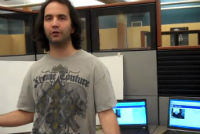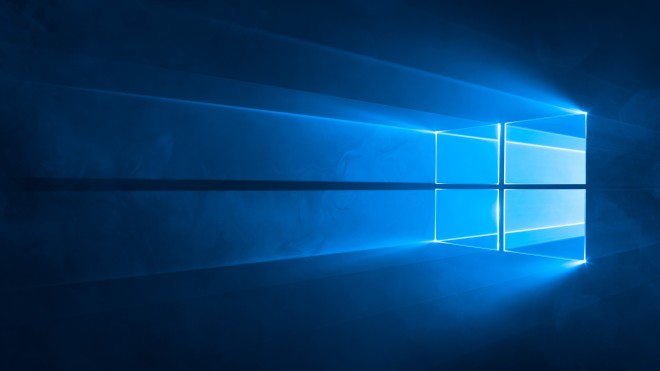 For the past several years, Kim Dotcom has been the most vocal supporter of Mega.co.nz, the cloud storage site he helped launch in 2013. Two and a half years later, something has gone very sour.
For the past several years, Kim Dotcom has been the most vocal supporter of Mega.co.nz, the cloud storage site he helped launch in 2013. Two and a half years later, something has gone very sour.
In a Q&A session with Slashdot this week, Dotcom told surprised readers that Mega was to be avoided.
“I’m not involved in Mega anymore. Neither in a managing nor in a shareholder capacity. The company has suffered from a hostile takeover by a Chinese investor who is wanted in China for fraud. He used a number of straw-men and businesses to accumulate more and more Mega shares,” Dotcom explained.
“Recently his shares have been seized by the [New Zealand] government. Which means the NZ government is in control.”
Intrigued, TorrentFreak spoke with Kim Dotcom to find out more about his allegations.
“Mega has experienced a hostile takeover and is no longer in the control of people who care about Internet Freedom. The New Zealand Government and Hollywood have seized a significant share of the company,” Dotcom told TorrentFreak.
“The combined shares seized by the NZ government and Hollywood were significant enough to stop our listing on the New Zealand stock exchange. On the one side Hollywood seized Mega shares of a family trust that was created for the benefit of my children and on the other side Hollywood was lobbying US Senators and credit card companies to stop payment processing for Mega.”
Dotcom says that the efforts of the NZ government and Hollywood meant that Mega couldn’t raise the capital required from the stock market to carry out its business plan. Furthermore, attacks on its abilities to process payments have now “dried up” the company’s cash flow.
“As a result Mega has been forced into bankruptcy territory and recently had to raise new capital at an insanely low valuation of NZD 10 million,” Dotcom says.
“This company was worth over 200 million before the NZ government and Hollywood launched their combined effort to destroy Mega. I have always said that this is a political case and the systematic sabotage of Mega is further proof of that.”
All of this leads Dotcom to the conclusion that Mega is no longer a safe site to use.
“As a result of this and a number of other confidential issues I don’t trust Mega anymore. I don’t think your data is safe on Mega anymore. But my non-compete clause is running out at the end of the year and I will create a Mega competitor that is completely open source and non-profit, similar to the Wikipedia model,” Dotcom says.
“I want to give everyone free, unlimited and encrypted cloud storage with the help of donations from the community to keep things going.”
Mega bites back
With shots fired, TorrentFreak spoke with Mega CEO Graham Gaylard and CCO Stephen Hall. Needless to say, they see things quite differently.
“Mega is a New Zealand company privately owned by 17 local and international investors, whose identities are publicly disclosed on the New Zealand Government’s Companies Office website,” Mega told TF.
“Like all start-up companies, Mega has had several rounds of equity investment. More than 75% of shareholders have supported recent equity issues, so there has not been any ‘hostile takeover’, contrary to Mr Dotcom’s assertion. Those shareholders who have decided not to subscribe to recent issues have been diluted accordingly. That has been their choice.”
Turning to the 6% shareholding held by the Dotcom family trust (which is controlled by Mr Dotcom’s estranged wife and is currently subject to a High Court freezing order following a 2014 application by five Hollywood film studios), Mega says there is no cause for alarm.
“That is a matter for the Dotcom family trust and does not concern Mega. The authorities responsible for maintaining the order have not opposed or interfered in any of Mega’s operations,” the company explains.
“Two other shareholdings totaling 7% are subject to a separate restraint ordered by the New Zealand High Court in August 2014. That is also a matter for that investor and does not concern Mega. Mega is not a party to either of the above court proceedings.”
Turning to Kim Dotcom’s claims that Mega is no longer in the hands of people who care about privacy, Mega told TF that isn’t the case.
“Mega continues to be managed by its executive team, supported by a Board of Directors and shareholders, who all care deeply about Internet freedom and privacy and are passionate about supporting Mega’s user-controlled encryption for cloud storage and communication services,” the company says.
Turning to Dotcom himself, the cloud storage site gave its clearest statement yet on its relationship with the German. Mega says that while Dotcom was a co-founder of their operation he was not involved in the design and implementation of Mega technology, resigned as a director in 2013 and has had no managerial role since. Additionally, Mega says that Dotcom has not received any payments or renumeration from the company.
“Mega disagrees with a number of Mr Dotcom’s public comments,” Mega adds.
Turning to the security of Mega itself, the company says that the full source for its client-side software SDK is available on Github and the source for its MEGAsync and mobile applications will be published in due course.
“Mega’s encryption code has been examined by various international experts including the Spanish National Cybersecurity Institute without any flaws being found,” the company says.
In closing, Mega issued a statement which indicates a collapse in relations with their co-founder.
“Mega views Mr Dotcom’s defamatory comments as self-serving and designed simply to [promote] his supposed new business venture,” Mega says.
“They are inconsistent with his previous desire to ensure that the shareholding in Mega remains a valuable asset for his children and reflect just how completely Mr Dotcom and Mega have now moved apart if he can make such an unwarranted and irresponsible, defamatory attack,” the company concludes.
Source: TorrentFreak, for the latest info on copyright, file-sharing, torrent sites and the best VPN services.

Source: TorrentFreak





 Hoping to revolutionize live broadcasting on the Internet, Bram Cohen
Hoping to revolutionize live broadcasting on the Internet, Bram Cohen 






 There can be little doubt that one of the most-favored anti-piracy mechanisms of the past several years is that of site-blocking. Rather than tackling sites head on with expensive legal action, rightsholders have domains blocked at the ISP level with the aim of diminishing ease of access and reducing direct traffic.
There can be little doubt that one of the most-favored anti-piracy mechanisms of the past several years is that of site-blocking. Rather than tackling sites head on with expensive legal action, rightsholders have domains blocked at the ISP level with the aim of diminishing ease of access and reducing direct traffic. 
 For the past several years, Kim Dotcom has been the most vocal supporter of Mega.co.nz, the cloud storage site he helped launch in 2013. Two and a half years later, something has gone very sour.
For the past several years, Kim Dotcom has been the most vocal supporter of Mega.co.nz, the cloud storage site he helped launch in 2013. Two and a half years later, something has gone very sour.


